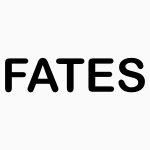61 papers:
 SIGMOD-2015-RablDFSJ #big data
SIGMOD-2015-RablDFSJ #big data- Just can’t get enough: Synthesizing Big Data (TR, MD, MF, SS, HAJ), pp. 1457–1462.
 CHI-2015-DeberJFW #how #latency #performance
CHI-2015-DeberJFW #how #latency #performance- How Much Faster is Fast Enough?: User Perception of Latency & Latency Improvements in Direct and Indirect Touch (JD, RJ, CF, DW), pp. 1827–1836.
 CHI-2015-KnavingWFB #comprehension #design #motivation
CHI-2015-KnavingWFB #comprehension #design #motivation- Flow is Not Enough: Understanding the Needs of Advanced Amateur Runners to Design Motivation Technology (KK, PW, MF, SB), pp. 2013–2022.
 ICFP-2014-Winograd-CortH #first-order #how
ICFP-2014-Winograd-CortH #first-order #how- Settable and non-interfering signal functions for FRP: how a first-order switch is more than enough (DWC, PH), pp. 213–225.
 ILC-2014-Nunes-Harwitt14a #approach #code generation #evaluation #semantics
ILC-2014-Nunes-Harwitt14a #approach #code generation #evaluation #semantics- Eager Evaluation Isn’t Eager Enough A Transformation Based Approach to Semantics-Directed Code Generation (ANH), p. 79.
 CHI-2014-HornbaekSBS #human-computer #interactive
CHI-2014-HornbaekSBS #human-computer #interactive- Is once enough?: on the extent and content of replications in human-computer interaction (KH, SSS, JABA, JGS), pp. 3523–3532.
 CHI-2014-PaterNMB #functional
CHI-2014-PaterNMB #functional- Just awful enough: the functional dysfunction of the something awful forums (JAP, YN, EDM, ASB), pp. 2407–2410.
 KDD-2014-PapalexakisFSTMF #algorithm #challenge #multi
KDD-2014-PapalexakisFSTMF #algorithm #challenge #multi- Good-enough brain model: challenges, algorithms and discoveries in multi-subject experiments (EEP, AF, NDS, PPT, TMM, CF), pp. 95–104.
 ASE-2013-VeerappaH #approach #maturity #requirements
ASE-2013-VeerappaH #approach #maturity #requirements- Assessing the maturity of requirements through argumentation: A good enough approach (VV, RH), pp. 670–675.
 DAC-2013-ZhaiBS #parallel #realtime #streaming
DAC-2013-ZhaiBS #parallel #realtime #streaming- Exploiting just-enough parallelism when mapping streaming applications in hard real-time systems (JTZ, MB, TS), p. 8.
 DATE-2013-Mitcheson #adaptation #energy #performance #question
DATE-2013-Mitcheson #adaptation #energy #performance #question- Adaptable, high performance energy harvesters: can energy harvesting deliver enough power for automotive electronics? (PDM), p. 482.
 CHI-2013-JotaNDW #case study #how #latency #performance
CHI-2013-JotaNDW #case study #how #latency #performance- How fast is fast enough?: a study of the effects of latency in direct-touch pointing tasks (RJ, AN, PD, DW), pp. 2291–2300.
 DUXU-NTE-2013-VilarRNTDF #question
DUXU-NTE-2013-VilarRNTDF #question- Are Emergency Egress Signs Strong Enough to Overlap the Influence of the Environmental Variables? (EV, FR, PN, LT, ED, EF), pp. 205–214.
 WICSA-ECSA-2012-KeulerKNR #architecture #framework #re-engineering #towards
WICSA-ECSA-2012-KeulerKNR #architecture #framework #re-engineering #towards- Architecture Engagement Purposes: Towards a Framework for Planning “Just Enough”-Architecting in Software Engineering (TK, JK, MN, DR), pp. 234–238.
 DAC-2012-Rinard #reasoning
DAC-2012-Rinard #reasoning- Obtaining and reasoning about good enough software (MCR), pp. 930–935.
 CSMR-2012-OlszakJ #composition #concept #how #legacy #question
CSMR-2012-OlszakJ #composition #concept #how #legacy #question- Modularization of Legacy Features by Relocation and Reconceptualization: How Much is Enough? (AO, BNJ), pp. 171–180.
 STOC-2012-ChakrabartiFW #multi #network #problem
STOC-2012-ChakrabartiFW #multi #network #problem- When the cut condition is enough: a complete characterization for multiflow problems in series-parallel networks (AC, LF, CW), pp. 19–26.
 ECIR-2012-NeumayerBN12a #effectiveness #semantics
ECIR-2012-NeumayerBN12a #effectiveness #semantics- When Simple is (more than) Good Enough: Effective Semantic Search with (almost) no Semantics (RN, KB, KN), pp. 540–543.
 QoSA-ISARCS-2011-Stal #architecture
QoSA-ISARCS-2011-Stal #architecture- Good is not good enough: evaluating and improving software architecture (MS), pp. 73–74.
 CIKM-2011-ElsayedLM #approximate #performance #retrieval
CIKM-2011-ElsayedLM #approximate #performance #retrieval- When close enough is good enough: approximate positional indexes for efficient ranked retrieval (TE, JJL, DM), pp. 1993–1996.
 CIKM-2011-KoloniariNPS #distributed
CIKM-2011-KoloniariNPS #distributed- One is enough: distributed filtering for duplicate elimination (GK, NN, EP, DS), pp. 433–442.
 RE-2011-Waldmann #agile #constraints #development #requirements #what
RE-2011-Waldmann #agile #constraints #development #requirements #what- There’s never enough time: Doing requirements under resource constraints, and what requirements engineering can learn from agile development (BW), pp. 301–305.
 ICALP-v2-2010-MarcinkowskiMK #decidability #logic
ICALP-v2-2010-MarcinkowskiMK #decidability #logic- B and D Are Enough to Make the Halpern-Shoham Logic Undecidable (JM, JM, EK), pp. 357–368.
 KR-2010-PichlerRSW #bound #constraints #programming
KR-2010-PichlerRSW #bound #constraints #programming- Tractable Answer-Set Programming with Weight Constraints: Bounded Treewidth Is not Enough (RP, SR, SS, SW).
 RE-2010-RachevaDSHW #agile #case study #requirements
RE-2010-RachevaDSHW #agile #case study #requirements- Do We Know Enough about Requirements Prioritization in Agile Projects: Insights from a Case Study (ZR, MD, KS, AH, RW), pp. 147–156.
 ASPLOS-2010-Brewer
ASPLOS-2010-Brewer- Technology for developing regions: Moore’s law is not enough (EAB), pp. 1–2.
 ASE-2008-Eltaher #approach #testing #towards
ASE-2008-Eltaher #approach #testing #towards- Towards Good Enough Testing: A Cognitive-Oriented Approach Applied to Infotainment Systems (AE), pp. 525–528.
 MSR-2008-Bernstein #data mining #how #mining
MSR-2008-Bernstein #data mining #how #mining- How to learn enough data mining to be dangerous in 60 minutes (AB), pp. 77–78.
 CAiSE-2008-MuehlenR #how #modelling #process
CAiSE-2008-MuehlenR #how #modelling #process- How Much Language Is Enough? Theoretical and Practical Use of the Business Process Modeling Notation (MzM, JR), pp. 465–479.
 DAC-2007-BacchiniHFRLTPZ #question #verification
DAC-2007-BacchiniHFRLTPZ #question #verification- Verification Coverage: When is Enough, Enough? (FB, AJH, TF, RR, DL, MT, AP, AZ), pp. 744–745.
 CSEET-2007-WilliamsL #question #why
CSEET-2007-WilliamsL #question #why- Lab Partners: If They’re Good Enough for the Natural Sciences, Why Aren’t They Good Enough for Us? (LW, LL), pp. 72–82.
 RE-2007-Jacobson #process
RE-2007-Jacobson #process- Enough of RE Processes — Let’s Do Practices (IJ).
 CSL-2007-BucciarelliEM
CSL-2007-BucciarelliEM- Not Enough Points Is Enough (AB, TE, GM), pp. 298–312.
 TestCom-FATES-2007-EldhPHJ #case study #component #fault #middleware #testing
TestCom-FATES-2007-EldhPHJ #case study #component #fault #middleware #testing- Component Testing Is Not Enough — A Study of Software Faults in Telecom Middleware (SE, SP, HH, PJ), pp. 74–89.
 TLCA-2007-JohannG #algebra #exclamation #semantics
TLCA-2007-JohannG #algebra #exclamation #semantics- Initial Algebra Semantics Is Enough! (PJ, NG), pp. 207–222.
 WICSA-2005-Schwanke #architecture #named #process #requirements
WICSA-2005-Schwanke #architecture #named #process #requirements- GEAR: A Good Enough Architectural Requirements Process (RWS), pp. 57–66.
 DAC-2005-WolfsthalG #question #verification
DAC-2005-WolfsthalG #question #verification- Formal verification: is it real enough? (YW, RMG), pp. 670–671.
 VLDB-2005-GuoLR #consistency
VLDB-2005-GuoLR #consistency- Caching with “Good Enough” Currency, Consistency, and Completeness (HG, PÅL, RR), pp. 457–468.
 SIGIR-2005-AllanCL #information retrieval #question
SIGIR-2005-AllanCL #information retrieval #question- When will information retrieval be “good enough”? (JA, BC, JL), pp. 433–440.
 HT-2004-MartinTA
HT-2004-MartinTA- The end-point is not enough (DM, MT, HA), pp. 128–129.
 SIGMOD-2004-GuoLRG #consistency #how #sql
SIGMOD-2004-GuoLRG #consistency #how #sql- Relaxed Currency and Consistency: How to Say “Good Enough” in SQL (HG, PÅL, RR, JG), pp. 815–826.
 SIGMOD-2004-IpeirotisG #database #using
SIGMOD-2004-IpeirotisG #database #using- When one Sample is not Enough: Improving Text Database Selection Using Shrinkage (PGI, LG), pp. 767–778.
 SIGMOD-2004-JagadishLSSW #xml
SIGMOD-2004-JagadishLSSW #xml- Colorful XML: One Hierarchy Isn’t Enough (HVJ, LVSL, MS, DS, NW), pp. 251–262.
 CHI-2004-TeevanAAK #behaviour #case study
CHI-2004-TeevanAAK #behaviour #case study- The perfect search engine is not enough: a study of orienteering behavior in directed search (JT, CA, MSA, DRK), pp. 415–422.
 PPDP-2004-SagonasS
PPDP-2004-SagonasS- Just enough tabling (KFS, PJS), pp. 78–89.
 CSEET-2003-CrnkovicLS #question #re-engineering
CSEET-2003-CrnkovicLS #question #re-engineering- Is Software Engineering Training Enough for Software Engineers? (IC, RL, AS), p. 140–?.
 CSMR-2003-Briand #documentation #how #question
CSMR-2003-Briand #documentation #how #question- Software Documentation: How Much Is Enough? (LCB), p. 13–?.
 EDOC-2003-GreenfieldFJK
EDOC-2003-GreenfieldFJK- Compensation is Not Enough (PG, AF, JJ, DK), pp. 232–239.
 ECOOP-2003-ClarkeW
ECOOP-2003-ClarkeW- External Uniqueness Is Unique Enough (DC, TW), pp. 176–200.
 ITiCSE-2001-BruceDM #programming
ITiCSE-2001-BruceDM #programming- Event-driven programming is simple enough for CS1 (KBB, APD, TPM), pp. 1–4.
 FASE-2000-Soley
FASE-2000-Soley- Memex Is Not Enough (RMS), p. 21.
 DAC-1999-FranzonBFMPSW #how #question
DAC-1999-FranzonBFMPSW #how #question- Parasitic Extraction Accuracy — How Much is Enough? (PDF, MB, AF, SM, RP, RCS, MW), p. 429.
 DLT-1999-FreundF
DLT-1999-FreundF- Test tube systems: when two tubes are enough (RF, FF), pp. 338–350.
 ICSE-1999-Fordham #maturity #process #question
ICSE-1999-Fordham #maturity #process #question- Software Process Maturity: Is Level five Enough? (RGF), p. 611.
 SIGMOD-1998-ChaudhuriMN #how #question #random
SIGMOD-1998-ChaudhuriMN #how #question #random- Random Sampling for Histogram Construction: How much is enough? (SC, RM, VRN), pp. 436–447.
 IWPC-1998-ErdosS #comprehension #maintenance #source code
IWPC-1998-ErdosS #comprehension #maintenance #source code- Partial Comprehension of Complex Programs (enough to perform maintenance) (KE, HMS), pp. 98–105.
 ICPR-1998-NishikawaOM #3d #using
ICPR-1998-NishikawaOM #3d #using- Selective acquisition of 3-D information enough for finding passable free spaces using an active stereo vision system (AN, AO, FM), pp. 857–861.
 SIGMOD-1997-CareyK #exclamation #on the #sql
SIGMOD-1997-CareyK #exclamation #on the #sql- On Saying “Enough Already!” in SQL (MJC, DK), pp. 219–230.
 INTERCHI-1993-GaverSHL #multi
INTERCHI-1993-GaverSHL #multi- One is not enough: multiple views in a media space (WWG, AS, CH, PL), pp. 335–341.
 PODS-1989-CohenW #knowledge base #parallel #why
PODS-1989-CohenW #knowledge base #parallel #why- Why a Single Parallelization Strategy in not Enough in Knowledge Bases (SRC, OW), pp. 200–216.
 ASPLOS-1987-ChowCHKW #how #question
ASPLOS-1987-ChowCHKW #how #question- How Many Addressing Modes are Enough? (FCC, SC, MIH, EK, LW), pp. 117–121.
 SIGMOD-2015-RablDFSJ #big data
SIGMOD-2015-RablDFSJ #big data CHI-2015-DeberJFW #how #latency #performance
CHI-2015-DeberJFW #how #latency #performance CHI-2015-KnavingWFB #comprehension #design #motivation
CHI-2015-KnavingWFB #comprehension #design #motivation ICFP-2014-Winograd-CortH #first-order #how
ICFP-2014-Winograd-CortH #first-order #how ILC-2014-Nunes-Harwitt14a #approach #code generation #evaluation #semantics
ILC-2014-Nunes-Harwitt14a #approach #code generation #evaluation #semantics CHI-2014-HornbaekSBS #human-computer #interactive
CHI-2014-HornbaekSBS #human-computer #interactive CHI-2014-PaterNMB #functional
CHI-2014-PaterNMB #functional KDD-2014-PapalexakisFSTMF #algorithm #challenge #multi
KDD-2014-PapalexakisFSTMF #algorithm #challenge #multi ASE-2013-VeerappaH #approach #maturity #requirements
ASE-2013-VeerappaH #approach #maturity #requirements DAC-2013-ZhaiBS #parallel #realtime #streaming
DAC-2013-ZhaiBS #parallel #realtime #streaming DATE-2013-Mitcheson #adaptation #energy #performance #question
DATE-2013-Mitcheson #adaptation #energy #performance #question CHI-2013-JotaNDW #case study #how #latency #performance
CHI-2013-JotaNDW #case study #how #latency #performance DUXU-NTE-2013-VilarRNTDF #question
DUXU-NTE-2013-VilarRNTDF #question WICSA-ECSA-2012-KeulerKNR #architecture #framework #re-engineering #towards
WICSA-ECSA-2012-KeulerKNR #architecture #framework #re-engineering #towards DAC-2012-Rinard #reasoning
DAC-2012-Rinard #reasoning CSMR-2012-OlszakJ #composition #concept #how #legacy #question
CSMR-2012-OlszakJ #composition #concept #how #legacy #question STOC-2012-ChakrabartiFW #multi #network #problem
STOC-2012-ChakrabartiFW #multi #network #problem ECIR-2012-NeumayerBN12a #effectiveness #semantics
ECIR-2012-NeumayerBN12a #effectiveness #semantics QoSA-ISARCS-2011-Stal #architecture
QoSA-ISARCS-2011-Stal #architecture CIKM-2011-ElsayedLM #approximate #performance #retrieval
CIKM-2011-ElsayedLM #approximate #performance #retrieval CIKM-2011-KoloniariNPS #distributed
CIKM-2011-KoloniariNPS #distributed RE-2011-Waldmann #agile #constraints #development #requirements #what
RE-2011-Waldmann #agile #constraints #development #requirements #what ICALP-v2-2010-MarcinkowskiMK #decidability #logic
ICALP-v2-2010-MarcinkowskiMK #decidability #logic KR-2010-PichlerRSW #bound #constraints #programming
KR-2010-PichlerRSW #bound #constraints #programming RE-2010-RachevaDSHW #agile #case study #requirements
RE-2010-RachevaDSHW #agile #case study #requirements ASPLOS-2010-Brewer
ASPLOS-2010-Brewer ASE-2008-Eltaher #approach #testing #towards
ASE-2008-Eltaher #approach #testing #towards MSR-2008-Bernstein #data mining #how #mining
MSR-2008-Bernstein #data mining #how #mining CAiSE-2008-MuehlenR #how #modelling #process
CAiSE-2008-MuehlenR #how #modelling #process DAC-2007-BacchiniHFRLTPZ #question #verification
DAC-2007-BacchiniHFRLTPZ #question #verification CSEET-2007-WilliamsL #question #why
CSEET-2007-WilliamsL #question #why RE-2007-Jacobson #process
RE-2007-Jacobson #process CSL-2007-BucciarelliEM
CSL-2007-BucciarelliEM TestCom-FATES-2007-EldhPHJ #case study #component #fault #middleware #testing
TestCom-FATES-2007-EldhPHJ #case study #component #fault #middleware #testing TLCA-2007-JohannG #algebra #exclamation #semantics
TLCA-2007-JohannG #algebra #exclamation #semantics WICSA-2005-Schwanke #architecture #named #process #requirements
WICSA-2005-Schwanke #architecture #named #process #requirements DAC-2005-WolfsthalG #question #verification
DAC-2005-WolfsthalG #question #verification VLDB-2005-GuoLR #consistency
VLDB-2005-GuoLR #consistency SIGIR-2005-AllanCL #information retrieval #question
SIGIR-2005-AllanCL #information retrieval #question HT-2004-MartinTA
HT-2004-MartinTA SIGMOD-2004-GuoLRG #consistency #how #sql
SIGMOD-2004-GuoLRG #consistency #how #sql SIGMOD-2004-IpeirotisG #database #using
SIGMOD-2004-IpeirotisG #database #using SIGMOD-2004-JagadishLSSW #xml
SIGMOD-2004-JagadishLSSW #xml CHI-2004-TeevanAAK #behaviour #case study
CHI-2004-TeevanAAK #behaviour #case study PPDP-2004-SagonasS
PPDP-2004-SagonasS CSEET-2003-CrnkovicLS #question #re-engineering
CSEET-2003-CrnkovicLS #question #re-engineering CSMR-2003-Briand #documentation #how #question
CSMR-2003-Briand #documentation #how #question EDOC-2003-GreenfieldFJK
EDOC-2003-GreenfieldFJK ECOOP-2003-ClarkeW
ECOOP-2003-ClarkeW ITiCSE-2001-BruceDM #programming
ITiCSE-2001-BruceDM #programming FASE-2000-Soley
FASE-2000-Soley DAC-1999-FranzonBFMPSW #how #question
DAC-1999-FranzonBFMPSW #how #question DLT-1999-FreundF
DLT-1999-FreundF ICSE-1999-Fordham #maturity #process #question
ICSE-1999-Fordham #maturity #process #question SIGMOD-1998-ChaudhuriMN #how #question #random
SIGMOD-1998-ChaudhuriMN #how #question #random IWPC-1998-ErdosS #comprehension #maintenance #source code
IWPC-1998-ErdosS #comprehension #maintenance #source code ICPR-1998-NishikawaOM #3d #using
ICPR-1998-NishikawaOM #3d #using SIGMOD-1997-CareyK #exclamation #on the #sql
SIGMOD-1997-CareyK #exclamation #on the #sql INTERCHI-1993-GaverSHL #multi
INTERCHI-1993-GaverSHL #multi PODS-1989-CohenW #knowledge base #parallel #why
PODS-1989-CohenW #knowledge base #parallel #why ASPLOS-1987-ChowCHKW #how #question
ASPLOS-1987-ChowCHKW #how #question









